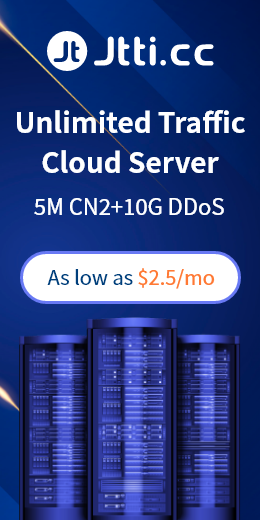Cloud Server, Dedicated Server, VIRTUAL Private Server, are three different hosting services. They have some differences in architecture, performance, and flexibility. The following are their main differences:
1. Architecture and resource isolation:
Cloud Server:
Architecture: The cloud server is based on cloud computing technology and uses virtualization technology to create virtual instances on physical servers.
Resource isolation: Virtualization technology has achieved effective resource isolation. Multiple cloud servers share the same physical server, but the resources between each other are independent.
Independent host:
Architecture: Independent host is a complete physical server, which is exclusively used by users and does not share hardware resources with other users.
Resource isolation: The hardware resources are completely independent, and the user has all the resources of the entire server.
VPS:
Architecture: VPS is divided into multiple virtual servers through virtualization technology.
Resource isolation: Resource isolation between virtual servers, but compared with cloud servers, resource isolation is more obvious.
2. Performance and flexibility:
- Cloud Server:
Performance: The performance of the cloud server is affected by virtualization technology. Compared with independent hosts, the performance may be slightly inferior.
Flexibility: Provide flexible resource adjustment and elastic expansion, and users can adjust resources at any time according to demand.
Independent host:
Performance: Due to the exclusive physical server, the performance is relatively high, and it is suitable for applications with higher performance requirements.
Flexibility: The flexibility is relatively low. You need to upgrade the hardware or replace the server manually to adjust the resource.
VPS:
Performance: The performance of VPS is between the cloud server and the independent host, which is closer to the independent host than the cloud server.
Flexibility: It has certain flexibility, and users can upgrade or reduce the specifications of virtual servers as needed.

3. Price and cost model:
Cloud Server:
Cost model: Usually use the resources used (such as CPU, memory, storage) and time.
Price: relatively flexible, users only need to pay the actual resources.
Independent host:
Cost model: Fixed monthly or annual rent is usually used, which is related to hardware specifications and service levels.
Price: relatively high, suitable for users with high performance requirements and stable resources.
VPS:
Cost model: Generally charged according to the specifications and use time of the virtual server.
Price: It is more flexible between the cloud server and independent host.
Summarize:
Cloud Server: Flexible, elastic, and required for application scenarios that are suitable for changes in resource demand.
Independent host: high performance, suitable for application scenarios with high performance requirements and relatively stable resource demand.
VPS: It has certain performance and flexibility, suitable for small and medium -sized application scenarios, between cloud server and independent hosts.

 EN
EN
 CN
CN









